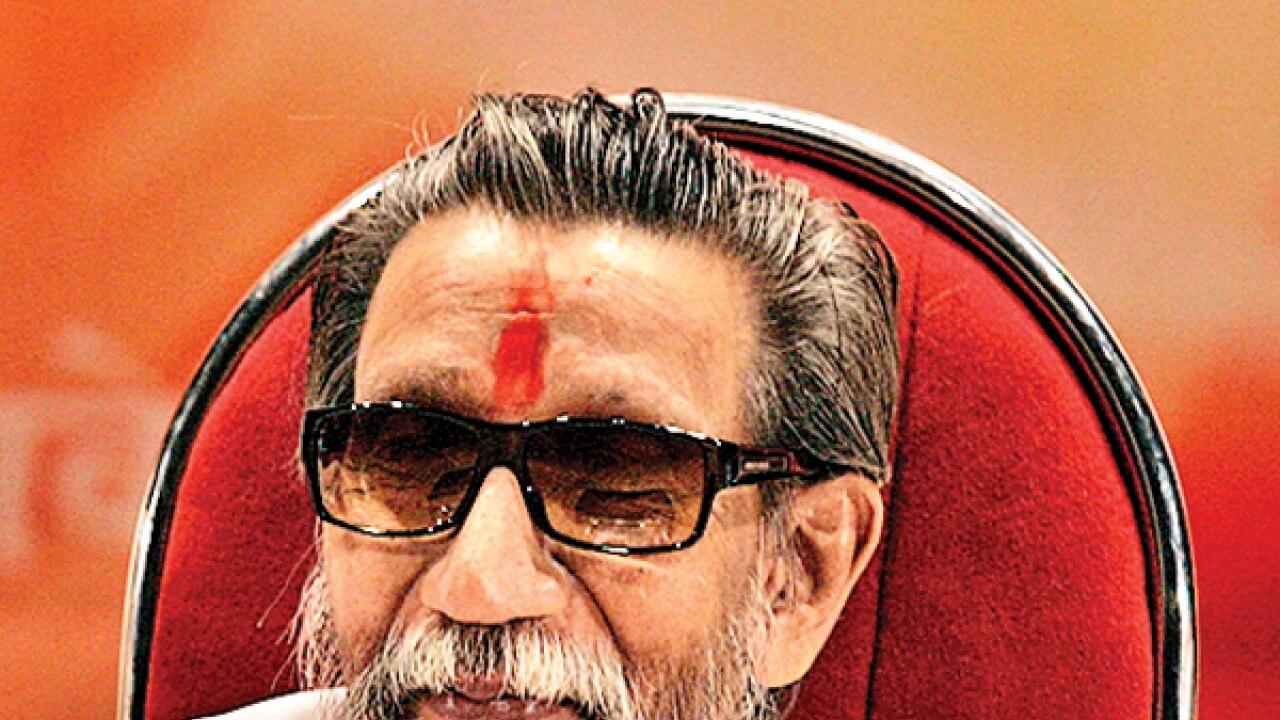
The BJP has bought temporary peace with the Shiv Sena by handing over the mayor’s bungalow in Mumbai for a permanent memorial for Balasaheb Thackeray. The memorial will stand on piece of prime property in the heart of the city and across the street from Shivaji Park where the tallest leader of the Sainiks began his political journey in 1966 with the founding of Shiv Sena.
The question that comes to mind is: Does the late Thackeray deserve a memorial? The answer is “yes” because the majority of Maharashtrians believe he should be honoured for his contributions to the cause of the Marathi manoos. No political outfit — including the Congress and Nationalist Congress Party — opposed the idea of a memorial because of the obvious repercussions that such a stand could unleash on them. Thackeray’s violent brand of nativism unleashed on the “outsiders” — first the South Indians and Communists, then the Muslims and much later migrant Biharis — has held a strong appeal among certain sections of the electorate who looked up to him as their saviour. Though his popularity did decline over the years, he still commanded a large following among Maharashtrians.
Interestingly, the BMC, run by the saffron alliance, could easily have allotted a parcel of land from its bank to erect a memorial for Thackeray. Yet, the mayor’s bungalow was chosen as the site to honour the Shiv Sena chief.
The Sena believes that the strategic location of the memorial will enhance its founder’s legacy. The Shivaji Park area houses two other memorials of national leaders, BR Ambedkar and Veer Savarkar. Ambedkar had already received the Bharat Ratna in 1990 and there is now growing clamour from the Sena cadres to confer the highest civilian honour to Savarkar.
The BJP, currently on the back foot due to electoral debacle in Bihar, knows that to antagonise the Sena over such an emotive issue would mean inviting further trouble for an already unstable alliance. The party, therefore, had to reverse its earlier stand, adopted barely a year ago, of not allowing any government bungalow to be used as a memorial. In October 2014, Union Finance Minister Arun Jaitley had clearly stated the government’s desire to put an end to the practice of converting government bungalows in Delhi into memorials and samadhis for national leaders.
Unfortunately, the Thackeray memorial issue has played out in accordance with a familiar political script. In India, the roots of politics of memorials run deep. Memorials are state-sponsored projects of ruling parties and their alliances to occupy the mind-space of the voter by building these brick-and-mortar structures. This is the same strategy that is at play in Maharashtra, on a much bigger scale and involving thousands of crores of rupees. The 192-metre statue of the Maratha warrior king Shivaji along with a museum, a theatre and an art gallery to come up off the coast of the Arabian Sea, will be a severe strain on the state exchequer. In addition, the Ambedkar memorial on a 12-acre mill land will cost at least Rs425 crore, its entire expenditure to be borne by the Maharashtra government. All these grand political projects at tax payers’ expense is hardly going to benefit the state, which is currently burdened with a loan of around Rs3 lakh crore, not to mention the heavy interest on that sum.
But, no ruling political party seems to be in the mood to demonstrate that rare and much-needed resolve to end the political opportunism that is inherent in these sweeping — and many would argue — pointless gestures ostensibly meant to honour great leaders.